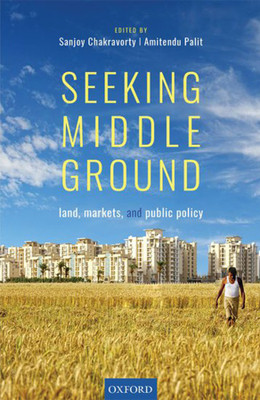Seeking Middle Ground(English, Hardcover, unknown)
Quick Overview
Product Price Comparison
Land is a subject of great conflict and debate in India. Over the past decade, the debate has focused on land acquisition, which some have called India's biggest problem. Land and the issues related to its acquisition have heavily influenced electoral verdicts and political fortunes in various parts of India. A new law for acquisition was created by the left-of-center Congress-led UPA government in 2013, which was immediately sought to be amended (unsuccessfully) in 2014 by the newly elected right-wing BJP-led NDA government. These differing visions on acquisition have often been simplified into opposing camps: people-friendly vs. business-friendly; o<"populist vs.neoliberal". Much of the general discourse on land remains similarly polarized. At the core of the debate are serious issues of justice and history intertwined with politics and economics. These debates over land are already prominent in contemporary India and are expected to become even more so in the coming decade given the anxieties over rural distress and the problem of livelihoods. Social, economic, and political turmoil over land will become more visible as India struggles to address the serious challenges of satisfying the aspirations of a burgeoning young population with growing lack of work. As land-based incomes stagnate or dwindle for rural communities and alternative earning options remain vague and limited, while changing land use from agriculture to more productive alternatives remains fraught with conflict, popular politics and public policies in India will have to stay engaged with the debate on land at their core.


